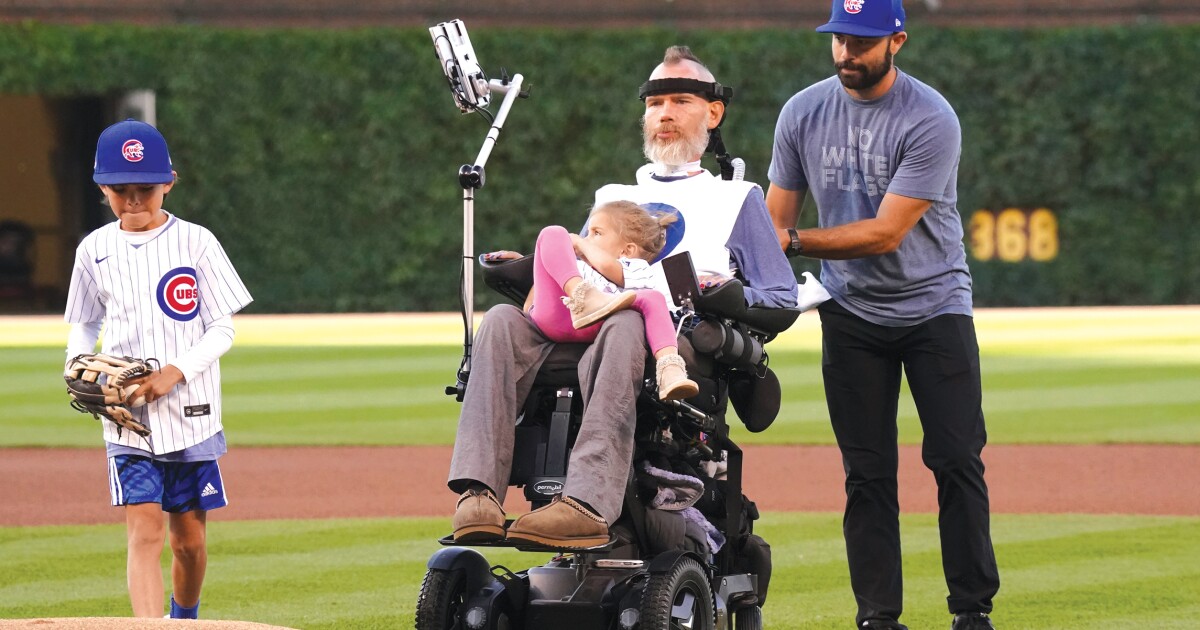

Patients with Lou Gehrig’s disease are angry about the possibility that the first new promising treatment in five years could be kept from them despite clinical evidence pointing to its benefits.
The treatment from Amylyx Pharmaceuticals, AMX0035, consists of two medications that are already widely used for other reasons but together could prolong ALS patients’ lives and slow the decline in their abilities to function. But the Food and Drug Administration’s panel of outside advisers voted narrowly in March to turn down Amylyx’s application for approval, citing concerns with the way researchers interpreted the data and the need for more robust clinical evidence from an additional, larger trial.
While the agency’s regulators are not obligated to abide by the committee’s vote, it often portends which way regulators are leaning. Patients and advocates were disheartened at the outcome of the Peripheral and Central Nervous System Drugs Advisory Committee vote, which was 6-4 in the negative.
“For us and for most people with ALS, it’s hard to provide a rationale for not approving the drug,” said Dr. Neil Thakur, chief mission officer at the ALS Association. “There were criticisms of that study, and I don’t think you could find anything like a perfect study anywhere. Yes, we would like more data. But the question is, what do we do for people now?”
Patients and advocates have launched an impassioned campaign for the treatment’s approval. The ALS Association, whose proceeds from the ice bucket challenge helped finance Amylyx’s research, led a group of 38 clinicians in a written plea last month for the FDA to approve the medication swiftly. In September, the organization launched a petition pressuring the FDA and Amylyx to work together to expedite the approval process. The petition was signed by about 43,000 people from across the ALS community, including patients, caretakers, people who have lost loved ones to ALS, and researchers searching for treatments and a cure.
The Amylyx trial was made up of 137 people who had the degenerative nervous system disorder, a sample size that the FDA deemed too small. But advocacy groups such as the ALS Association argue that because ALS affects about five people per 100,000, the sample size is actually acceptable relative to other studies like the one from Amylyx. Most studies into other health conditions, such as heart disease, which affects many more people than ALS does, would include more people in their sample.
The study used a common clinical metric for gauging people’s ability to walk, talk, feed, and dress themselves, known as the Revised Amyotrophic Lateral Sclerosis Functional Rating Scale. Each function is scored from 4 (normal ability) to 0 (no ability) with a maximum total score of 48 and a minimum total score of 0. People in the study who received the treatment were found to have lost fewer points over the six-month time period. They were also able to survive about 6 1/2 months longer than those who took a placebo.
The FDA was set to make a decision on June 29, but that date was pushed back three months to give the agency more time to review additional analyses of data from Amylyx’s clinical studies. The delay means not only that patients will have to wait until the fall to find out if they have another treatment option. Many patients alive now will not survive until then. ALS is relentlessly progressive, gradually eroding all voluntary muscle abilities, strength, and the capacity to speak, eat, move, and breathe over a span of three to five years.
“Our overarching feeling is in ALS we have to move fast,” said Justin Klee, Amylyx’s co-founder and co-CEO. “While it’s an encouraging time, FDA is engaged, an additional three months can literally mean life and death for people with ALS. So it means we just have to constantly make sure we’re moving fast.”
The drug combination was deemed safe in the trial, and given the dearth of medications for ALS, patients and patient advocates say the benefits of the medication far outweigh the risks of taking it.
“There really is a trade-off between approving a drug that may not have a benefit versus the downside of waiting to confirm that a drug actually does have a benefit,” Thakur said. “Everyone we’ve spoken to with ALS and almost all of the ALS clinicians we’ve spoken to said the same thing — that [they] would rather take the drug with a risk of no benefit than wait a few years to find out that there was a benefit that we didn’t get.”





